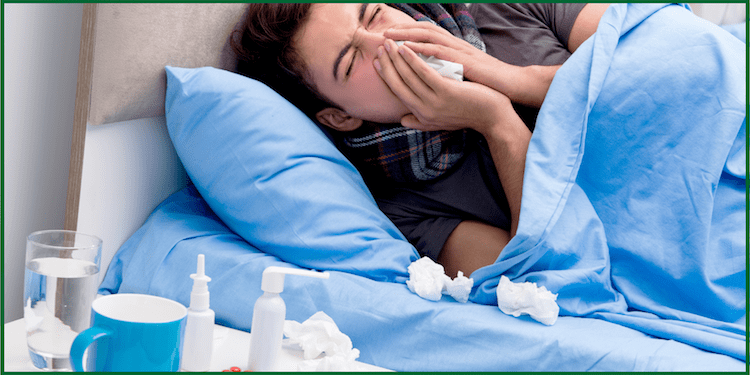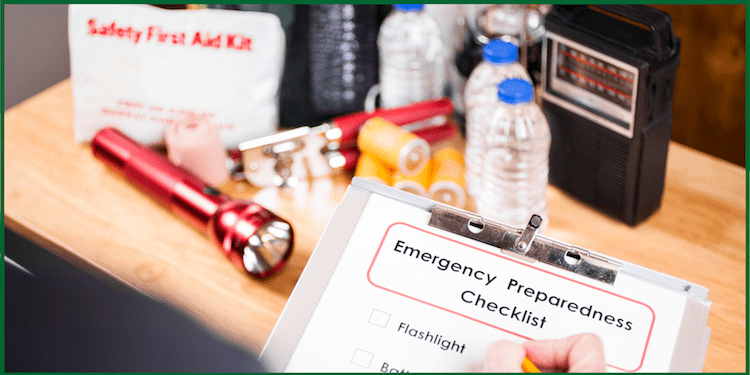A safety guide is needed as Cold, Flu, and COVID-19 threats loom as the season changes. A complete safety guide is essential to staying healthy and being safe throughout the year.
This comprehensive guide provides actionable tips to help you safeguard against illnesses during the challenging cold, flu, and COVID-19 season.
1. Understanding the Risks:
As we approach the cold and flu season while still dealing with the COVID-19 pandemic, it’s crucial to recognize and understand the unique risks associated with the convergence of these illnesses.
While cold, flu, and COVID-19 symptoms can overlap and be difficult to distinguish, there are ways to protect oneself and stay ahead of the curve.
Early recognition of symptoms is critical in preventing the spread of illness, and seeking prompt medical advice is essential to ensure proper diagnosis and treatment.
Practicing good hygiene habits, such as frequently washing hands and wearing masks in public spaces, can reduce the risk of contracting and spreading these illnesses.
It’s important to stay proactive and informed, as we all have a role in keeping ourselves and others safe during this challenging time.
We can confidently navigate the cold and flu season while still dealing with the COVID-19 pandemic by staying vigilant and taking necessary precautions.
2. Building Immunity:
Maintaining a strong immune system is crucial in preventing the spread of illnesses like cold, flu, and COVID-19.
While there’s no guaranteed way to avoid illness, incorporating natural ways to boost Immunity can help reduce the risk.
One effective way to boost your immune system is by maintaining a meal-balanced diet rich in vitamins and minerals.
Incorporating vegetables and fresh fruits, lean proteins, and whole grains into your meals can provide essential nutrients your body needs to stay healthy.
In addition to a meal-balanced diet, staying hydrated is essential in supporting your immune system.
Drinking a reasonable amount of water can help clear out toxins and keep your body functioning correctly.
Regular exercise is another natural way to boost Immunity.
Exercise can help increase circulation, reduce stress, and improve overall health and well-being. Even a short walk or light workout can have an optimistic impact on the immune system.
Adding these natural ways to boost Immunity can help strengthen the body’s defenses and reduce the risk of illness.
However, it’s important to note that these methods should differ from medical care and advice from a healthcare professional.
3. Effective Hand Hygiene:
Proper hand-washing is one of the most effective ways to prevent the spread of viruses. It’s a simple yet powerful way to protect yourself and others from getting sick.
Here are the step-by-step instructions on effective hand hygiene practices:
1. Wet hands with clean, running water. It can be warm or cold.
2. Apply soap on hands to lather by rubbing them together. Be sure to cover all surfaces of your hands, including your fingers, nails, and the backs of your hands.
3. Scrub your hands for at least 20 seconds. Sing “Happy Birthday” twice to yourself while scrubbing your hands to make sure you are washing for the recommended duration.
4. Rinse your hands thoroughly with a clean, clear, running water.
5. Dry your hands with an air-dry system or a towel. If using a towel, ensure it’s clean and not shared with others.
6. If possible, use a paper towel to turn off the faucet and open the door to leave the bathroom to avoid re-contamination.
It’s essential to wash your hands frequently, most notably before and after food preparation, before eating, after visiting the toilet, after blowing the nose or sneezing, and after touching common surfaces like doorknobs or handrails.
If soap and water are unavailable, utilize alcohol-based hand sanitizers with at least 60% alcohol.
Following these effective hand hygiene practices will help to reduce the spread of germs and help keep yourself and others healthy.
4. Mask Etiquette:
Also, to protect one another, it’s important to remember that wearing masks helps protect against COVID-19 and serves as a defense against airborne cold and flu viruses.
Here are some guidelines for selecting and using masks correctly:
Firstly, choosing a mask that fits well and covers both the nose and mouth is vital. It is possible to select from a variety of masks, including cloth masks, surgical masks, and N95 respirators.
Cloth masks are suitable for daily use and are washable and reusable, while N95 respirators and surgical masks are recommended for healthcare workers and those at high risk of exposure.
When using a mask, please wash your hands before putting it on and after taking it off.
Avoid touching the mask’s inner part while wearing it; if you need to adjust it, do so with ear loops or ties.
Most importantly, replace your mask if it becomes damp or soiled.
It’s essential to wear a mask in public spaces, especially where social distancing, like grocery stores and public transportation, may be difficult.
By following these guidelines and incorporating mask-wearing into the daily routine, you can help protect yourself and others against the spread of airborne illnesses during the cold and flu season.
5. Indoor Ventilation:
Indoor air quality is crucial in preventing respiratory infections and bacteria, particularly during the cold and flu season, when people are likely to spend more time indoors due to the weather conditions.
Deficient indoor air quality can lead to the proliferation of airborne pathogens, including viruses, bacteria, and fungi, that can cause respiratory infections.
For effective indoor air quality improvement, increasing ventilation in shared spaces, such as homes, offices, and schools is important.
Here are some practical tips on how to improve ventilation:
1. Open windows and doors: Opening windows and doors can improve air circulation and exchange indoor air with fresh outdoor air.
2. Use exhaust fans: Exhaust fans can help remove stale air and moisture from bathrooms, toilets, kitchens, and other areas that generate excess moisture.
3. Install air purifiers: Air purifiers can help remove airborne particles, including viruses, bacteria, and allergens, from the air.
4. Maintain HVAC systems: Regular maintenance of Heating, Ventilation, and Air-Conditioning (HVAC) systems can help ensure they are working correctly and provide adequate ventilation.
5. Use natural ventilation: If possible, use natural ventilation, such as cross-ventilation, to improve air circulation.
By implementing these practical tips, you can maintain good indoor air quality (IAQ) while reducing the risk of respiratory infections and promoting a healthier living and working environment.
6. Importance of Vaccines:
Vaccination is an essential step in protecting yourself and others from contracting and spreading illnesses like cold, flu, and COVID-19.
The vaccines stimulate the human immune system to produce antibodies to fight infections.
Getting vaccinated can not only reduce the severity of cold and flu symptoms but can also prevent co-infections with COVID-19.
The Centers for Disease Control and Prevention (CDC) recommends that everyone six (6) months and older get vaccinated for the flu every year, and COVID-19 vaccination is now available for those eligible.
It’s crucial to get vaccinated, especially if you are at high risk of developing complications from these illnesses, such as older adults, young children, pregnant humans, and those with underlying medical conditions, such as asthma, diabetes, or heart disease.
It’s important to talk to your healthcare provider about which vaccines you should get and when to get them.
Vaccines play a significant role in preventing the spread of illnesses.
By getting vaccinated, you can help protect yourself and others from getting sick and reduce the spread of these illnesses.
7. Telehealth Options:
It’s essential to seek prompt medical advice if you experience cold, flu, or COVID-19 symptoms.
However, visiting a healthcare facility during peak illness seasons may increase the risk of exposure to other illnesses. That’s where telehealth services come in handy.
Telehealth services provide a convenient and safe way to access medical advice from the comfort of your home.
One can consult with a healthcare professional via video or phone call, and they can provide a diagnosis and treatment plan without needing an in-person visit.
Mobile health services are beneficial during peak illness seasons when healthcare facilities are more crowded, and the risk of exposure to other illnesses may be high.
You can seek medical advice using telehealth services without risking exposure to other illnesses.
If you’re experiencing cold, flu, or COVID-19 symptoms, consider using telehealth services to seek medical advice.
Telehealth is a convenient and safe way to get the medical consultation you need while minimizing the risk of exposure to other illnesses.
8. Quarantine and Isolation Protocols:
Quarantine and isolation are two distinct practices used to prevent the spread of illnesses.
Isolation is the separation of individuals confirmed or suspected to have an illness to prevent the spread of that illness to others.
Quarantine is the separation and restriction of movement for individuals who may have been exposed to an illness but are not yet showing symptoms.
1. Guidelines for Quarantine:
Anyone being in close contact with someone who tested positive for an illness such as COVID-19 should immediately quarantine themselves at home for 14 days.
During quarantine, they should monitor their symptoms and take their temperature twice daily.
Even if they do not show any symptoms, they should continue to quarantine for 14 days, as it can take longer for symptoms to appear.
While in quarantine, they should stay home and avoid contact with others, including those in their household.
They should use a separate bedroom and bathroom from others in their household.
They should also avoid sharing personal items such as grooming kits, towels, bedding, or dishes.
If they develop symptoms during quarantine, they should contact their healthcare provider without hesitation for further guidance.
2. Guidelines for Isolation:
If someone is confirmed or suspected to have an illness such as COVID-19, they should immediately isolate themselves at home or in a healthcare facility if their symptoms are severe.
If isolating at home, they should stay in a separate room from others in their household and use a separate bathroom.
They should wear a mask if they need to leave the room and avoid sharing personal items with others.
It’s essential to follow the guidance of a healthcare provider during their isolation, which may include taking medication and monitoring their symptoms closely.
And if symptoms worsen, they should seek medical attention immediately.
In summary, quarantine and isolation are effective practices to prevent the spread of illnesses.
If exposed to an illness, it’s important to quarantine yourself for the recommended period to prevent spreading the illness to others.
If you have a confirmed or suspected illness, you should isolate yourself to avoid spreading the illness to others and seek medical attention as needed.
Bottomline
Cold, Flu, and COVID-19 seasons threaten our health, and protecting our health is of utmost importance. To achieve this, we must take proactive steps and build Immunity.
By practicing effective hand hygiene, following proper mask etiquette, and ensuring proper indoor ventilation, we can easily prevent the spread of illness.
Additionally, getting vaccinated, taking advantage of telehealth options, and strictly adhering to quarantine and isolation protocols can enhance protection to safeguard our exposure to deadly viruses.
Let us all share this guideline with everyone to promote community well-being and stay healthy together!
Do you enjoy this reading? Kindly share with family, friends, and colleagues. Thanks! 🙂



